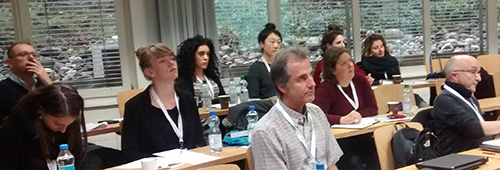Factorial Survey in Recruiter Survey. An Epilog.
The workshop on survey designs in labor market research took place on 9 November 2016 at the University of Bern.
This workshop was organized as a follow up event to the workshop on factorial survey designs that took place in Lausanne on 21 May 2015, where we become aware of the fact that several teams in Switzerland are analyzing similar questions with the same methodological approach. Naturally, we decided to meet again to allow the five Swiss research teams to present (first) results of the survey experiments they have implemented since the first workshop – offering them a platform for fruitful discussion of results and analytical strategies.
The five teams that presented research are the NEGOTIATE project at the University of Basel and Bern, the Integration through Active Labor Market Policies project of the nccr – on the move, the IP 204 team focusing on Education and Employment in the NCCR LIVES, the project by Didier Ruedin analyzing (positive) discrimination in hiring, as well as the project by Ulf Liebe and Benita Combet working on state choice experiments at the University of Bern and Lausanne.
Moreover, we had two very interesting keynote speeches. In the morning, Prof. Andreas Damelang (University of Erlangen) presented research on recruitment and vocational training, whilst in the evening, Dr. Valentina Di Stasio (University of Oxford) presented her work on the influence of over- and undereducation in hiring.

Lively discussions followed the two keynotes and the different presentations and, besides, all research teams obtained valuable feedbacks on their specific projects from both speakers and the audience. In particular, we exchanged insights about the best ways to present factorial vignettes for the purpose of studying hiring decision. We also discussed various issues linked to data analysis and to the presentation of the results.
The attendance of 25 national and international guests from different disciplines allowed the members of the Swiss teams both to deepened their exchange on the different projects as well as to network and establish new professional contacts. The discussion benefitted a lot from the researchers’ interdisciplinarity, which opened new perspectives on the various questions.
Flavia Fossati, nccr – on the move, PostDoc on the project Integration through Active Labor Market Policies

